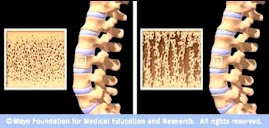"Hello and welcome. I am Dr George Lundberg, and this is At Large at Medscape.
I do not know anything about nutrition as it relates to chronic illness, including obesity. I used to think that was because, probably like you, I was taught so little about nutrition in medical school. I have spent a medical lifetime reading articles about nutrition, before and after publication. But I am still woefully ignorant of "nutritional truth."
Take vitamin D. The minimum daily requirement prevents rickets. But then, just a few years ago, it became popular to check vitamin D blood levels. And many people were found to have "low" vitamin D levels. Then many diseases were found to be associated with "vitamin D deficiency," except it turns out that many labs were not doing the tests in equivalent ways.
After a whole lot of fuss and study, the Agency for Healthcare Research and Quality (AHRQ) issued a report this year that finds no consistent correlation between vitamin D and health outcomes such as cardiovascular disease, all-cause mortality, several types of cancer, or bone health.[1] Amazing.
Which Brings Us to Vitamin K
What do you know about vitamin K? It has something to do with blood coagulation, right? Yes, but that is vitamin K1. I am asking about vitamin K2. I bet you have not thought much about that vitamin.Here are nine things every physician should know about vitamin K2:
- It exists.
- It is essential for life and health.
- There is currently no reliable blood test to measure it.
- Your body makes a certain amount via menaquinone-4 (M-4) in your gut from vitamin K1.
- That may not be enough.
- Your body probably needs more vitamin K2 for disease prevention than it manufactures, so nutritional sources are important.
- Foods rich in vitamin K2 (often in the form of M-4 or M-7) include: natto (fermented soybeans); green, leafy vegetables; organ meats such as goose liver; grass-fed beef; dairy; eggs; and fish.
- Or you can take nutritional supplements to achieve healthy levels of vitamin K2.
- Deficiencies of vitamin K2 are now being reported in serious journals to be associated with—get this—all-cause mortality, cardiovascular disease, osteoporosis, diabetes, many forms of cancer, dementia, and chronic inflammation.
Is vitamin K2 the ubiquitous disease-associated vitamin D-like deficiency, sans blood testing, all over again? A fad disease about to pop up, flourish, and disappear? Or is this a real, late-to-the-table, fundamental new understanding of possible causes of many common diseases, disability, and death? And if vitamin K2 is taken correctly, will it result in prevention and treatment of same? Look it up; check it out.
I do not know how this is going to work out, but I have a hunch that vitamin K2 will turn out to be a really big deal rather than only "the new vitamin D," with much fuss and little substance.
Most of this research is being done in Japan and Europe, especially The Netherlands, well away from the US Department of Agriculture and lobbyists for the American food industry and its captured government and academic partners.
I owe my current interest in this topic to a product of the Internet as the world's greatest library—a well-educated, nonscientist who got really interested in this topic and will not let up. Thank you, Micki Jacobs of Cincinnati.
That's my opinion. I am Dr George Lundberg, at large at Medscape."
http://www.medscape.com/viewarticle/834763?nlid=70845_1521&src=wnl_edit_medp_wir&uac=127701PY&spon=17



3 comments:
Dear Bone Lady, This is not a comment on your post. I just couldn't figure out how/where to ask you a question. I was in touch with you about 18 months ago when I first started taking Strontium Citrate. I am noticing, among others, 2 changes in myself since I started taking Strontum:
1. More frenetic energy in my brain, e.g. a sense of urgency, like short circuits.
2. More facial wrinkles, especially in my upper lip.
This may sound funny. So I am 57, and wrinkles happen. Just wondering, especially about 1., if you have any experience or awareness of these kinds of side effects. Thanks again!
last message about frenetic energy from georgiagreene@gmail.com
Dear Georgia,
I have never experienced or heard of anyone experiencing frenetic energy in the brain or facial wrinkles from strontium.
You described frenetic energy as as a sense of urgency, like short circuits. I'm not sure what you mean. Are you feeling anxious? Ironically, although you said you were not commenting about this post on Vitamin K2, the MK-7 form of this vitamin has been associated with insomnia and restlessness in some people.
If you haven't done it already, go over all the medications and other supplements you are taking. Think about any diet changes you've made. How is your blood pressure? Has it changed recently?
I do not think strontium is responsible, but, you could stop taking it for awhile and see if the symptoms disappear. Let me know how things work out for you. I remember you.
Post a Comment